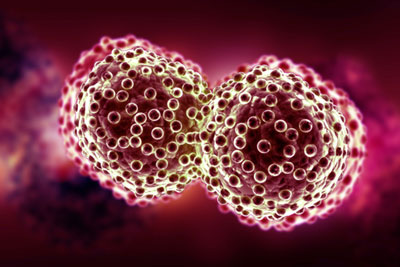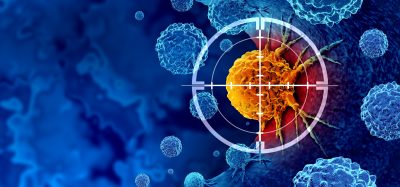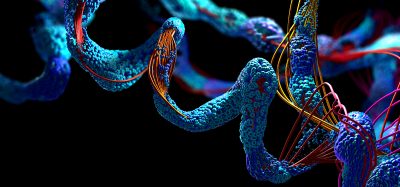Using AI to predict metastatic behaviour of NSCLC
Posted: 8 April 2024 | Dr Ramaswamy Govindan (Washington University School of Medicine), Dr Richard Cote (Washington University School of Medicine), Ellen Capon (Drug Target Review) | No comments yet
Dr Richard Cote and Dr Ramaswamy Govindan of the Washington University School of Medicine elucidate how AI, particularly deep learning networks, could identify histopathologic features in non-small cell lung cancer, and impact the treatment approach for early-stage patients.

What are the challenges associated with predicting metastatic behaviour in non-small cell lung cancer (NSCLC), particularly in early-stage patients?
Dr Cote: As of today, there is no method to predict metastatic behaviour in NSCLC (or any other cancer). We can break down populations of patients into higher and lower risk, such as grade of the tumour and molecular alterations, but this does not tell us what will happen to an individual. Our study provides some evidence that we may be able to better predict metastatic behaviour using AI.
How have recent advancements in immune checkpoint blockade therapy affected outcomes for primary NSCLC?
Dr Govindan: Even though immunotherapy and chemotherapy given after surgery improve the overall survival, as Dr Cote said, many may not need those therapies and a good number of them recur despite post operative systemic therapies. Identifying patients who are at high risk for relapse would likely help us isolate those high risk group of patients for more innovative clinical trials.
How does artificial intelligence (AI), especially deep learning networks, contribute to the identification of histopathologic features in NSCLC? How does this differ from traditional histopathologic analysis?
Dr Cote: This is a good question. In our study AI is “looking” at the same histologic information, that is the same digital images, as a pathologist. However, it is obviously not looking at that data in the same way, and is, for example, able to break down the features on the digital image (colour, spatial orientation) in ways a pathologist cannot do, at least not systematically. Having said that, we are now trying to better understand how the AI is examining the images, and the molecular basis for the predictive ability of the AI algorithm.
Could you explain the significance of utilising weakly/unsupervised deep learning algorithms in predicting progression and survival potential in NSCLC?
Dr Cote: In supervised AI, we are telling the AI what to look at and what it means; that is, we are asking it to do what a pathologist can already do. This has been the main application of AI on histologic images, to make a diagnosis on an image that is concordant with that of a pathologist. In our study, we asked if the AI could do something that a pathologist is unable to do, that is, to make a prediction of which tumours will metastasise, and which will not. So, rather than tell the AI what and how to look at an image, we had it interrogate images of tumours that resulted in metastasis, and images from tumours that resulted in no metastasis, and only told it which was which. This was how we trained it. We then presented the AI with images of tumours it had never seen before, and asked if it could predict which developed metastasis and which did not. Since we do not know the features that go into making that prediction, our supervision consisted only of providing the AI with a rough outline of where the tumour was located on an image.
How might the integration of AI predictions into clinical practice impact the treatment approach for patients with early-stage NSCLC?
Dr Cote: The decision to treat an early-stage NSCLC with systemic therapy (chemotherapy, immune therapy) is not easy, as many patients will be cured without such treatment. If our study proves to be correct as we expand the number of cases we analyse, one clear clinical impact could be to identify patients who are very unlikely to develop metastasis, and thus spare them from such toxic and expensive treatment.
This study was published in The Journal of Pathology.
About the authors
 Dr Ramaswamy Govindan, Associate Chief of the Division of Oncology, Washington University School of Medicine
Dr Ramaswamy Govindan, Associate Chief of the Division of Oncology, Washington University School of Medicine
Dr Ramaswamy Govindan is the Associate Chief of the Division of Oncology at Washington University School of Medicine in St Louis. As a medical oncologist interested in thoracic malignancies, Dr Govindan has led a number of national and international studies in lung cancer over the past decade. Working with The McDonnell Genome Institute at the Washington University School of Medicine and with The Cancer Genome Atlas (TCGA) project (as a co-chair) sponsored by the U.S. National Cancer Institute (NCI), he has led a number of research projects to study genomic alterations in lung cancer. He led the group that has recently discovered mechanisms of resistance for chemotherapy in small cell lung cancer. Ongoing work led by him on genomic alterations in primary and the corresponding brain metastases from patients with lung cancer is expected to provide new insights into how cancer cells metastasize.
He is the Principal Investigator for the NCI funded ALCHEMIST trial to study the role of erlotinib in patients with early-stage EGFR mutated lung cancer. Dr Govindan is keen on translating genomic discoveries from the laboratory setting to clinical setting to improve the outcomes of patients with lung cancer and mentor trainees and junior faculty members. Dr Govindan has published over 400 peer-reviewed papers in scientific journals and has been awarded several grants from the National Cancer Institute.

Dr Richard J. Cote, MD, FRCPath, FCAP, Edward Mallinckrodt Professor, Chair and Professor of the Department of Pathology and Immunology, Washington University & Pathologist in Chief at Barnes Jewish Hospital
Richard J. Cote, MD, FRCPath, FCAP is the Edward Mallinckrodt Professor, Chair and Professor of the Department of Pathology and Immunology at Washington University in St. Louis School of Medicine, and the Pathologist in Chief at Barnes Jewish Hospital.
Dr Cote earned degrees in chemistry and biology at the University of California at Irvine and his medical degree from the University of Chicago – Pritzker School of Medicine. He completed his residency at New York Hospital – Cornell University Medical College. His training included fellowships in pathology at Memorial Sloan-Kettering Cancer Center, Human Tumor Immunology at Memorial Sloan-Kettering Cancer Center in the lab of Lloyd Old and in Molecular Pathology at New York University School of Medicine in the lab of Angel Pellicer. Dr Cote began his career at the University of Southern California Keck School of Medicine, rising to Professor in departments of Pathology and Urology and Director in the Genitourinary Cancer Program, Laboratory of Immunology and Molecular Pathology and USC Biomedical Nanoscience Initiative. In 2009, he became the Joseph R. Coulter Jr. Chair of the Department of Pathology and Professor of Biochemistry and Molecular Biology. He is founding Director of the Dr John T. Macdonald Foundation Biomedical Nanotechnology Institute at the University of Miami.
At Washington University in St. Louis, Dr Cote has continued to build the Department of Pathology and Immunology in scientific discovery, clinical innovation and education of the next generation of physicians and scientists. Under his leadership, the department has recruited outstanding scientists, including new leadership in the Division of Immunobiology and the creation of the Brain Immunology and Glial (BIG) Center, which focuses on research of brain immunology and aging. He has led the transition to subspecialty care, recruiting some of the most outstanding pathologists in the country. He is actively working with the Barnes Jewish System to bring advanced pathology services to partner hospitals and has helped convert Barnes Jewish West County Hospital to full subspecialty pathology care. He and his colleagues are leading a transition from traditional methods of delivering pathology services to the adoption and creation of advanced tools that will allow the expansion of Washington University expertise providing unprecedented access to expert pathologists and services.
Dr Cote’s research focuses on the elucidation of cellular and molecular pathways of tumour progression, metastasis and response to therapy. He has built a program to explore the earliest manifestation of metastatic spread of cancer, including research to study and understand circulating tumour cell (CTC) biology. He has a special interest in developing tools that can allow advances in research and clinical care and has over 20 patents for cancer related and nanoscale technologies. He and his colleagues across universities have developed nanoscale technologies for cancer diagnostic applications, including bionanosensors for the detection of serum tumour markers; technologies for the capture, characterization and propagation of CTC; and advanced methods of microscopy, imaging and the application of Artificial Intelligence (AI). He is the recipient of over $190 million in research support, including nearly $43 million as principal investigator, primarily from the NIH. He led three of the largest clinical trials in breast, lung and bladder cancer, which were based on discoveries from his research. He is the author of over 300 publications, including several standard textbooks in his research and clinical areas of expertise.
Dr Cote serves as a member and advisor to many national and international organizations, including the NCI. He was awarded the 2013 Distinguished Alumnus of the Year by the School of Physical Sciences at the University of California, Irvine, was elected to the Association of American Physicians in 2010 and is a member of Phi Beta Kappa and the Alpha Omega Alpha Medical Honor Societies. He was awarded the Miami Chamber of Commerce Bio-Medical Healthcare Heroes Award and Society for Personalized Nano-Medicine Excellence Service Award. In 2021 Dr Cote was elected to the National Academy of Inventors.
Dr Cote is the founder of several technology-based companies, including Impath, Inc., Clarient, Filtini, Sensitini and Circulogix. Impath, one of the first companies to bring esoteric testing for cancer analysis to the market, was founded in 1988 and underwent an IPO in 1996. Dr Cote later founded Clarient, which brought high tech diagnostic capabilities to practicing pathologists and oncologists and was acquired by GE in 2009. Dr Cote has been an advisor to numerous biotech and biopharmaceutical companies, including Genentech, Roche, Lilly, Neoprobe, Johnson and Johnson Ortho Pharmaceuticals, Abbott/Vysis, GoPath, Illumina and GRAIL.
Related topics
Artificial Intelligence, Cancer research, Chemotherapy, Clinical Trials
Related conditions
Cancer Research, Non-small cell lung cancer (NSCLC)
Related organisations
Washington University School of Medicine







